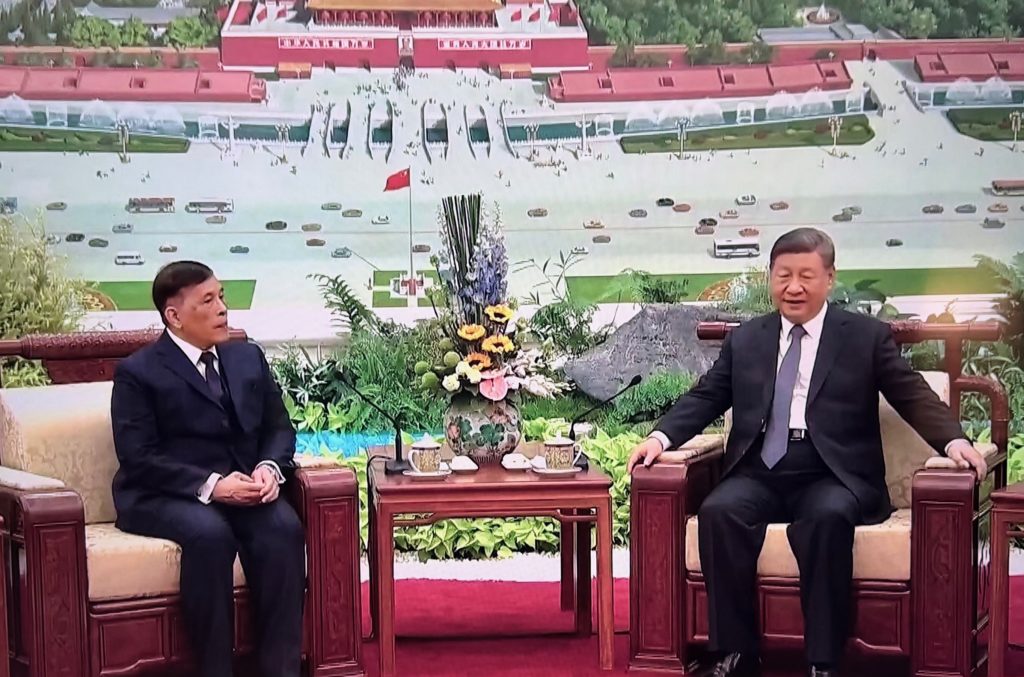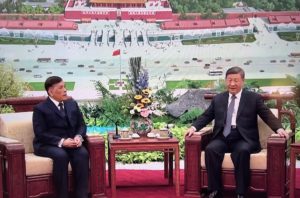BEIJING — On the afternoon of November 14, King Maha Vajiralongkorn and Queen Suthida arrived at the sprawling Great Hall of the People in Beijing, where they were formally greeted by President Xi Jinping and First Lady Peng Liyuan. The five-day visit, the first ever by a reigning Thai monarch to the People’s Republic of China, was timed to mark the half-century anniversary of Thailand–China relations.
Chinese state media quoted Xi as welcoming the visit as a step toward “greater progress” and described Thailand and China as “genuine good relatives, good friends and good partners.” He told the King that Beijing was ready to deepen strategic alignment, increase imports of Thai agricultural produce, and cooperate on major infrastructure, artificial intelligence and aerospace projects.
In response, the King framed the bilateral relationship in familial terms, calling it “brotherly cooperation” and expressing his wish to broaden exchanges across multiple sectors.
A New Era of Economic and Strategic Cooperation
For both capitals, this visit serves as more than ceremony — it signals a substantive upgrade in intentions. Thailand, long a U.S. treaty-ally, is already China’s largest trading partner in Southeast Asia and increasingly relies on Beijing as a partner for investment, military equipment and infrastructure development.
Chinese commentary emphasises that Thailand now stands as “an unmovable neighbour” in Beijing’s eyes, one whose cooperation offers a model of “win-win” eastern diplomacy. In particular, Chinese reports highlight planned cooperation in smart farming, electric vehicles, aerospace, and the shared “digital economy”.
For Thailand, the timing is notable. The King has made only one prior official overseas visit since ascending the throne in 2016—earlier in 2025 to Bhutan. His appearance in Beijing thus underscores the priority Thailand is placing on its relationship with China.
Domestic and International Responses
In Thailand, government statements emphasize the historic nature of the visit and the intent to strengthen “royal friendship” and deepen bilateral ties. Thailand’s official channels describe the trip as “a significant historic occasion”.
Internationally, commentators note this visit as part of Beijing’s expanding influence in Southeast Asia — particularly amid U.S.–China competition. One analysis described it as sending “a clear message to the world” about China’s role in the region.
However, the trip also raises caution flags. Bangkok’s earlier decision to deport dozens of Uyghur asylum-seekers to China despite international human‐rights concerns has drawn criticism from Western governments and NGOs. Similarly, Thailand’s tightening of cultural-space freedoms under Chinese diplomatic pressure has been cited as evidence of Beijing’s soft-power leverage in the kingdom.
Looking Ahead: What to Watch
- Economic Implementation. Will the announced cooperation in agriculture, infrastructure and aerospace translate into concrete deals? Observers will track whether Thai agricultural exports to China rise significantly and whether major rail or AI projects move beyond memorandums.
- Geopolitical Balancing. Thailand must manage its traditional security ties with the U.S. alongside deepening engagement with China, a complex balancing act in the context of regional competition.
- Domestic Implications. As Thailand tilts toward China, issues of governance, human-rights norms and cultural autonomy may become more salient—especially given recent examples of censorship and repatriation linked to Beijing’s interests.
- Symbolism and Soft Power. The royal visit carries strong symbolic weight, reinforcing Beijing’s narrative of “China and Thailand as one family.” The extent to which that translates into public sentiment in Thailand remains to be seen.
In all, what began as a ceremonial mission marking five decades of ties has evolved into a larger strategic gesture: a reaffirmation of Thailand’s pivot toward deeper partnership with China—and a clear signal from Beijing of its ambition to embed itself more firmly as a principal partner in Southeast Asia. (zai)


